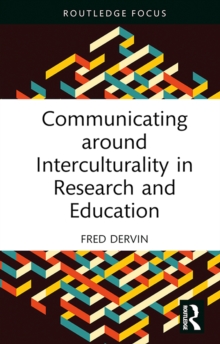
Flexing Interculturality : Further Critiques, Hesitations, and Intuitions EPUB
by Hamza R'boul, Fred Dervin
Part of the New Perspectives on Teaching Interculturality series
EPUB
Description
This book continues the two scholars' endeavours for opening up more spaces for alternative perspectives, analyses and praxis in interculturality.
The main text features fragments that bear relevance to a wide range of topics including education, politics, personal experiences, social realities, hierarchies, self-critique, language and locus of enunciation. The book takes a step forward by using fragments as an alternative way of doing research and writing scholarship. The premise here is that fragments are human and they reflect our fleeting, inconsistent and unsystematic production of knowledge that today's scholarship has presented to be linear, structured and aligned. The authors draw on fragments to make their points as forcefully as possible by constructing sentences that destabilize themselves and readers to consider other paths and perspectives. That is, writing otherwise may propel thinking otherwise since the very bases, upon which we push our insights to mould through and by, are shaken and ultimately transcended. The chapters include questions with (temporary) answers as an attempt to induce readers to think for themselves and to move beyond what this book has to offer.
This book will be a great read to scholars and students in the field of interculturality, education and sociology. The authors hope that this book will be seen as a genuine example of de-linking from mainstream writing and thinking conventions about interculturality in communication and education without compromising epistemic depth and nuance.
Information
-
Download - Immediately Available
- Format:EPUB
- Pages:184 pages
- Publisher:Taylor & Francis
- Publication Date:13/09/2023
- Category:
- ISBN:9781000992427
Other Formats
- PDF from £17.99
Information
-
Download - Immediately Available
- Format:EPUB
- Pages:184 pages
- Publisher:Taylor & Francis
- Publication Date:13/09/2023
- Category:
- ISBN:9781000992427










